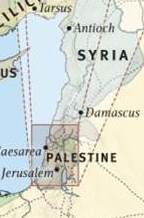By Ward Shope
 29 So the disciples determined, every one according to his ability, to send relief to the brothers living in Judea.
29 So the disciples determined, every one according to his ability, to send relief to the brothers living in Judea.
I know what you’re thinking. This is a church blog and “generosity” is simply the new codeword for what we used to call “stewardship.” Namely, giving money. I don’t deny that money can be part of the discussion here. But “giving money” is a behavior and this blog is about heart.
While I’ve given this topic a lot of thought over the years, our sermon passage on Sunday, which includes the verse above, jumped out at me. I was struck by the response of the believers in Antioch to a prophecy that famine was coming to a church in a country far away among a group of people they had never met. Their primary connection was simply that they were fellow believers. With little or no outside encouragement, they “all” decided to participate in bringing relief.
Weren’t there any poor believers where they were? Probably. Understanding the culture in which they lived and knowing what we do of the early non-Jewish church, many were poor and simply scratching out their own existence. Some may have already been receiving help from their fellow believers if the church in Antioch reflected the church in Jerusalem. Yet their response, without prompting, seems to be a willingness to give what they can.
To me, it reflects not behavior, but a transformed heart. Once in a while the debate is raised whether we ought to be sending money overseas to missionaries or relief projects when we have so much need here. Yet research has shown again and again that people who give internationally are more routinely involved in local ministries in giving money – and time and prayer – than those who are not. This isn’t a pitch for you to give internationally. Rather it points to the evidence that a heart changed by Jesus’ generosity to us, in giving us salvation by his Son, impacts us in every area of our lives.
Occasionally Debbie and I help out with the food cupboard at New Life. I am amazed at how many are involved: transporting food, setting it up, and cleaning up afterward over 52 weeks of the year. While some are helping because they benefit from the cupboard personally, many others, including whole family units, participate simply as their hearts have moved them to. It takes a small army. No one can find evidence of their generosity on their bank statement. Unless you’re onsite when and where they are, you don’t see them.
And my guess is that those involved in the ESL ministry, or the children’s ministry, or many other ministries, are exactly the same. If someone serves in one ministry, it’s likely you will also find evidence of generosity in time and resources in other ways.
That doesn’t mean that we magically become overwhelmingly generous when we become believers. We still struggle with protecting “our” time and money. There are also legitimate limits in all of our lives. But like all areas of Christian discipleship, God calls us to stretch. As we do, we also find him working in us to make us willing. Sometimes “practicing” generosity reveals that God does really provide time, resources and contentment for us. We might not have known it without stretching. And often without noticing, we realize that we’ve become more like those believers in Antioch.
